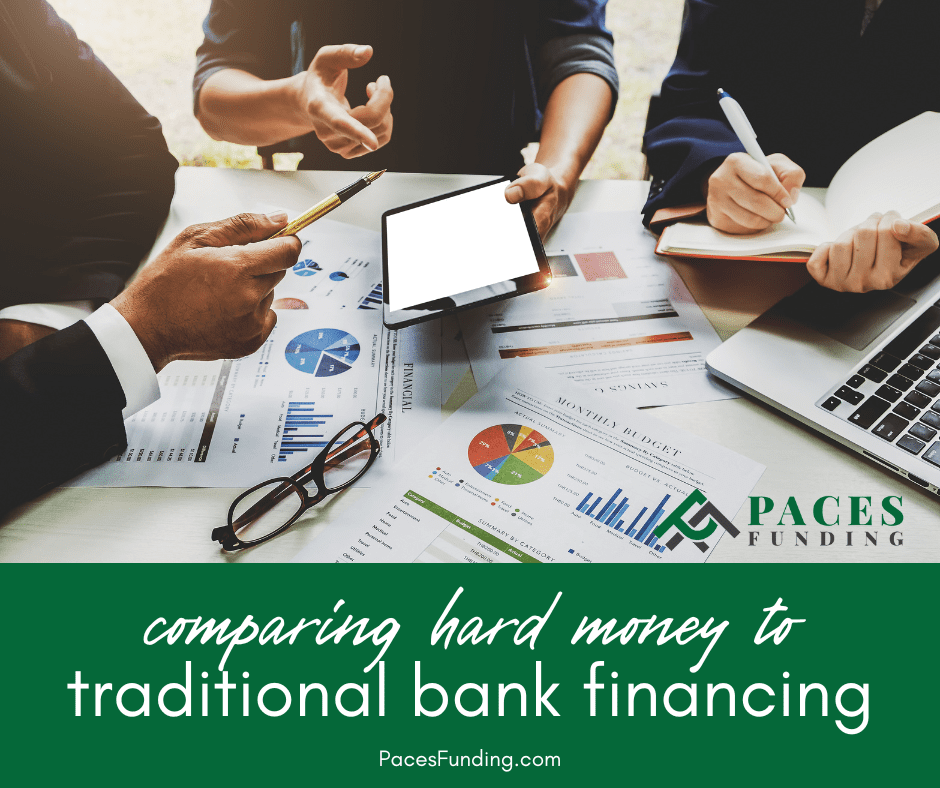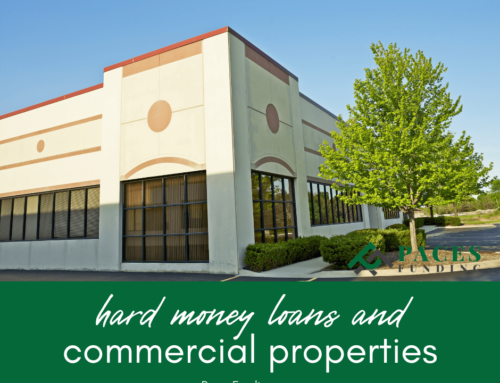
Comparing Hard Money Loans with Traditional Bank Financing
When it comes to financing real estate investments, you have more than one path to choose. Two common options are hard money loans and traditional bank financing. While both can be beneficial depending on the situation, they are quite different in many ways. Understanding these differences can help you make the best choice for your next real estate venture.
Comparing Hard Money Loans with Traditional Bank Financing
This guide explains the following:
- Definition and Key Features
- Qualification Process
- Speed of Approval
- Flexibility and Terms
- Costs and Fees
Here’s a closer look at each.
Definition and Key Features
Hard money loans are typically short-term, asset-based loans, often used for real estate investment projects. Traditional bank financing, on the other hand, generally consists of conventional mortgages that might have a longer repayment period. The key difference lies in the approval criteria and flexibility. Hard money loans emphasize the property’s value and potential, while traditional bank loans often focus on the borrower’s creditworthiness.
Qualification Process
When it comes to qualifying, you’ll find hard money loans are usually less stringent. While traditional bank loans require a good credit score, stable income, and other financial documentation, hard money lenders primarily assess the property itself and your plan for it. If you have a promising investment property, you’ll likely find it easier to get a hard money loan.
Speed of Approval
If you’re in a hurry to secure financing, hard money loans generally offer a quicker approval process. Traditional bank loans can take anywhere from 30 to 60 days for approval. Hard money lenders, focusing on the property and the investment strategy, can approve loans in as little as a few days.
Flexibility and Terms
Flexibility is where hard money loans often shine. If your investment project is unconventional or you need more customized loan terms, a hard money lender might be your best bet. Traditional banks usually have fixed criteria and may not provide the same level of adaptability. Moreover, hard money loans are typically short-term, while traditional loans can extend over many years.
Costs and Fees
While hard money loans offer several advantages, they might come with higher interest rates and fees compared to traditional bank loans. It’s essential to weigh the costs against the benefits, considering your specific situation and needs.
FAQ About Hard Money Loans
Check out these commonly asked questions about hard money loans. If you don’t see the answers here, please call our office and we’ll get you the information you need.
Q: Can I refinance a hard money loan with a traditional bank loan?
A: Yes, after you secure the property and meet the bank’s criteria, you can often refinance a hard money loan with a traditional bank loan.
Q: Is a hard money loan only for distressed properties?
A: No, hard money loans can be used for various investment purposes, including renovations, flips, land purchases, and more.
Q: Are there any prepayment penalties with hard money loans?
A: It depends on the lender. Always ask about prepayment penalties or any other fees upfront.
Q: Can I use hard money loans for my primary residence?
A: Generally, hard money loans are for investment properties. You should talk to your lender about your intentions before you make a decision on financing.
After you find your dream investment opportunity, choosing the right financing is key. Whether a hard money loan or traditional bank financing is right for you depends on various factors like your project’s nature, timeline, and your financial situation. By understanding these two options’ key differences, you’ll be better positioned to make an informed decision that aligns with your investment goals.
Do You Need a Hard Money Loan?
Paces Funding is the top hard money lender in Georgia, North Carolina, South Carolina and Tennessee. Apply for a hard money loan here or click through our site to find out how we can help you now!














